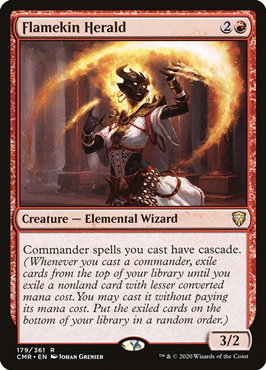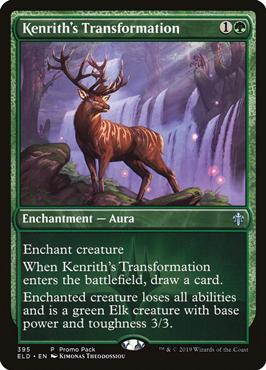Wilds of Eldraine brings with it a host of legendary creatures with an Adventure. That means we can play Commanders with Adventure for the first time. But how does Adventure work with Commander Tax?
ADVENTURE COMMANDERS
Fans of the Adventure mechanic will be pleased to see that we have some Commander-eligible creatures with Adventure for the first time in Wilds of Eldraine.
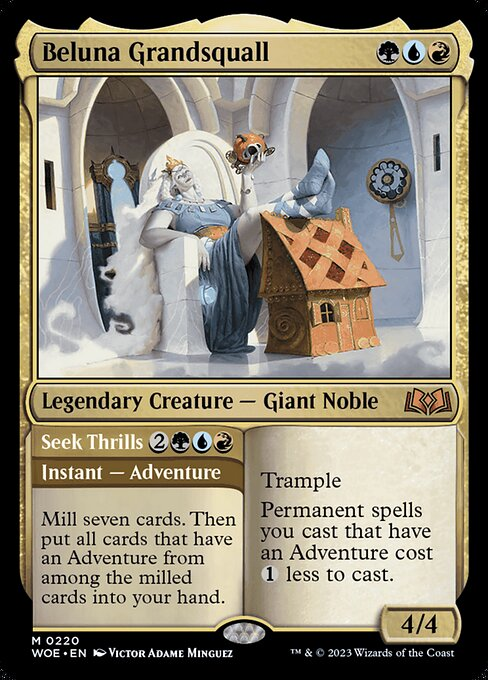
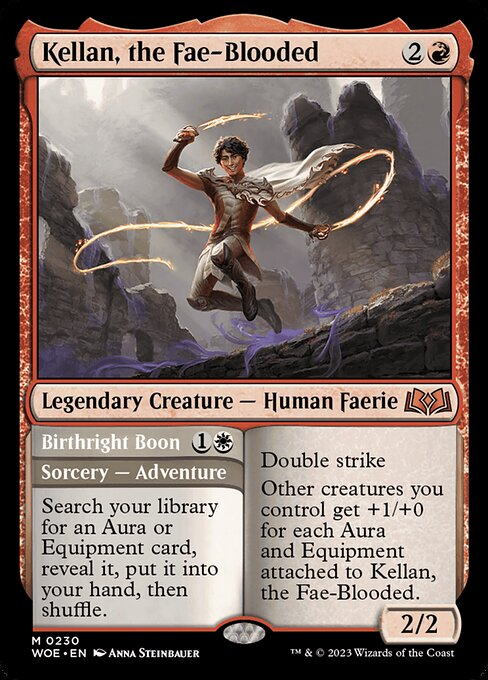
So far, we’ve only seen two: Beluna Grandsquall and Kellan, the Fae-Blooded. Beluna seems to be the defacto Adventures Commander (in Temur colors) with Adventure synergy baked in.
Kellan, on the other hand, is a new Boros Commander that… cares about equipment! What makes him worth considering, however, is the Open the Armory in the Command Zone, and the fact you get two cards of card advantage on one card. But how do Adventures work in regards to Command Tax?
HOW ADVENTURES WORK WITH COMMAND TAX
We’ve yet to get the official release notes document for Wilds of Eldraine — a document that’s made available at set launch to clarify rulings and interactions — but we can still shed some light on how this particular interaction works.
If we look at the Official Commander Rules, Rule 6 states that:
Commanders begin the game in the Command Zone. While a commander is in the command zone, it may be cast, subject to the normal timing restrictions for casting creatures. Its owner must pay
for each time it was previously cast from the command zone; this is an additional cost.
So, whenever we cast our Commander from the Command Zone, we have to pay {2} more mana for each time it was previously cast. But what about when we want to cast Beluna’s “Seek Thrills” or Kellan’s “Birthright Boon?
Being a commander is not a characteristic [MTG CR109.3], it is a property of the card and tied directly to the physical card. As such, “commander-ness” cannot be copied or overwritten by continuous effects. The card retains it’s commander-ness through any status changes, and is still a commander even when controlled by another player.
Well, being a Commander is an aspect of the card in your Command Zone. That means that the Legendary you select to be your Commander retains the characteristic of being a Commander no matter what.
So, casting Beluna or Kellan as an Adventure still counts as casting your Commander. That means that yes, both “Seek Thrills” for five and Beluna herself, for three, both trigger Flamekin Herald.
So, whether you cast Beluna or Seek Thrills, you will have cast your Commander, meaning the next time you cast the Commander from the Command Zone, you will pay Command Tax.
To help learn about this facet of the rules, here are some other common instances where Rule 6 matters:
- An opponent gains control of your Commander. When they attack with it, it is still your Commander. That means it deals Commander Damage. That also means that it can deal Commander Damage to you. And yes, that means you can die by taking 21 Commander Damage from your own Commander.
- When an effect “removes all abilities” from a creature, turning it into a vanilla creature (like say, through Kenrith’s Transformation), it can still deal Commander Damage, because the card itself is considered your Commander — not the creature, its name or rules text.
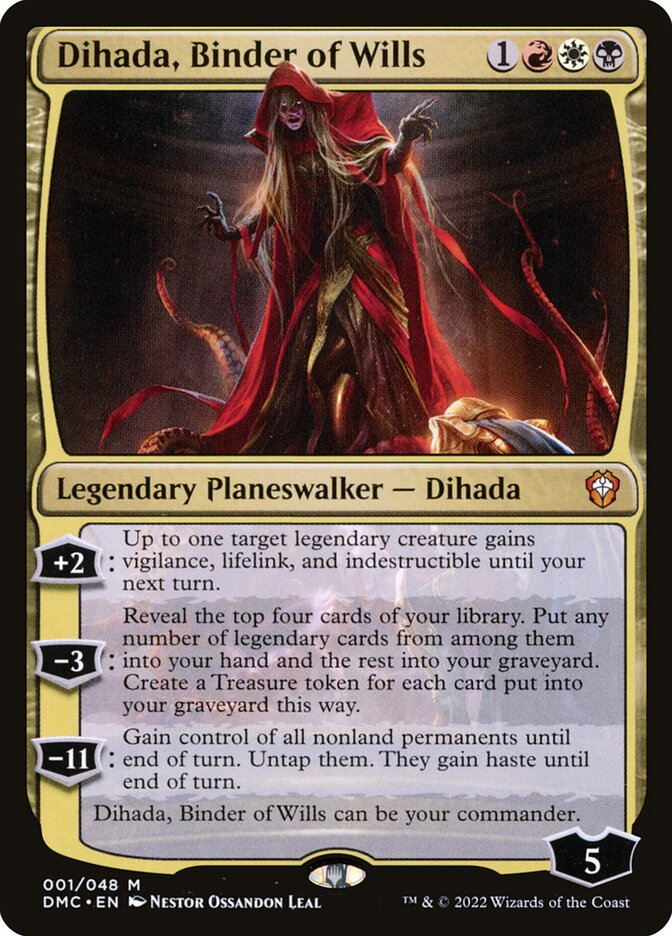

- If you can turn a Planeswalker you have in the Command Zone into a creature, it can deal Commander Damage.

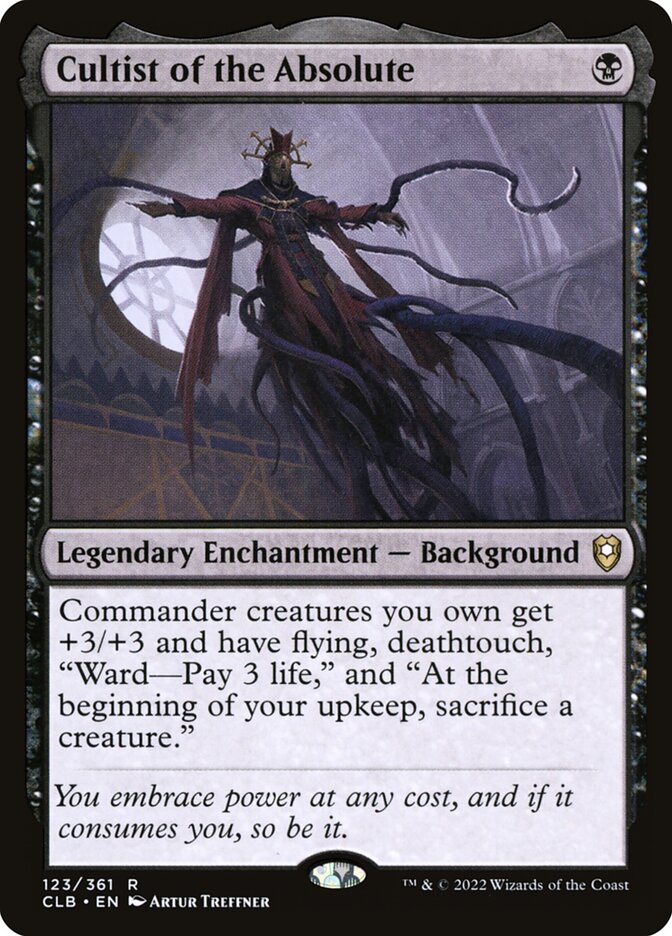
For the purposes of working out what colors your Commander has protection from on a card like Commander’s Plate, you include Partners and Backgrounds in your Commander’s overall Color Identity. That’s because even though Backgrounds aren’t creatures, they still have the aspect of “Your Commander,” which as we discussed above, is a quality of the card itself and nothing to do with it being a creature or not.
But what about casting Beluna from the Exile Zone, after resolving Seek Thrills? Do you have to pay tax then?
CASTING A COMMANDER FROM EXILE
Importantly, you pay Command Tax only when casting from the Command Zone. If you cast your Commander from Hand, or the Graveyard, or from Exile, you do not pay Commander Tax.
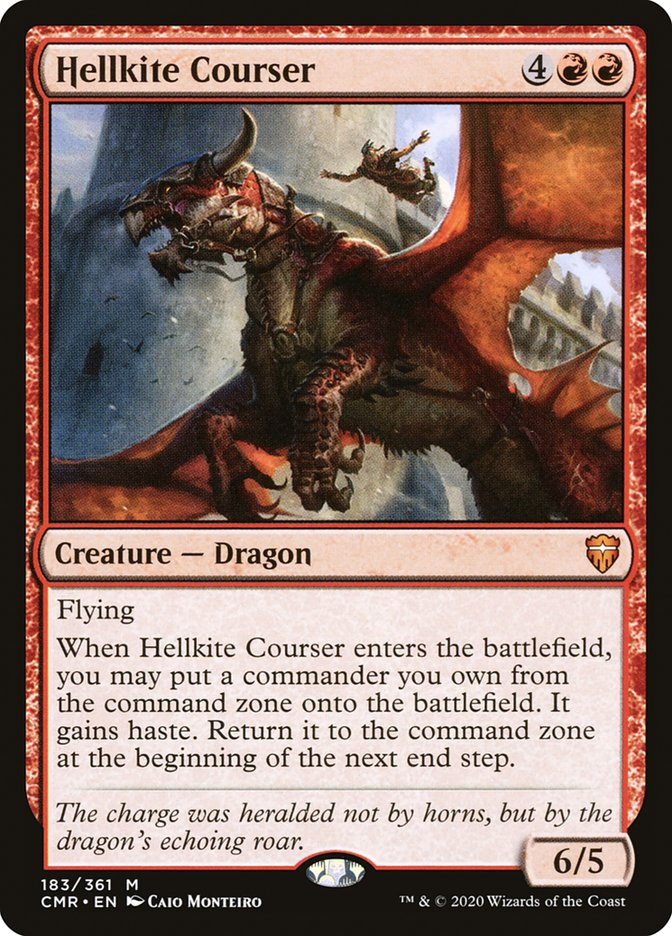
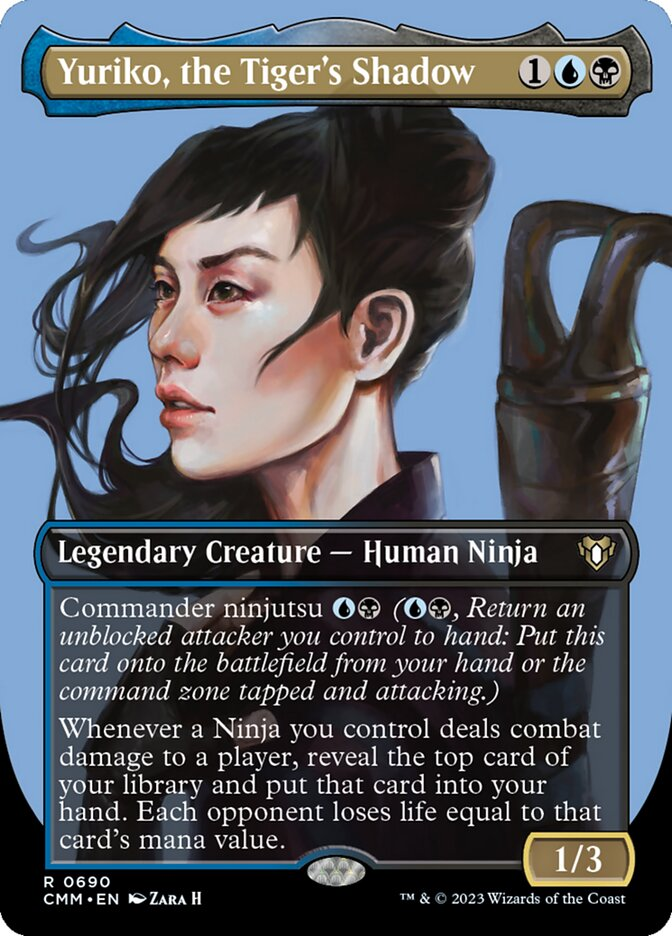
By playing a card like Hellkite Courser, you’re never actually casting your Commander from the Command Zone. You’re putting it into play, meaning Hellkite Courser’s effect will not increase Command Tax, no matter if it’s already costing you tax, or if you’ve never actually cast your Commander yet this game.
It’s the same reason why Yuriko is so broken powerful; you’re activating Commander ninjutsu, which says you put Yuriko into play. You don’t cast her.
Generally speaking, in a game of Commander, we very rarely let our Commander stay in the exile zone, because if we can’t get it back again? Well, it’s gone forever. We instead apply the replacement effect in Rule 7:
If a commander is in a graveyard or in exile and that card was put into that zone since the last time state-based actions were checked, its owner may put it into the command zone. If a commander would be put into its owner’s hand or library from anywhere, its owner may put it into the command zone instead. This replacement effect may apply more than once to the same event.
This replacement effect can be chosen to apply when you cast your Commander as an Adventure. When the spell resolves, and asks you to exile the card, you may use Rule 7’s replacement effect to send it to the Command Zone. However, this would fly in the face of why we’re playing these creatures in the first place: to get two spells out of one card. If we chose not to use Rule 7’s replacement effect, our Commander stays in the exile zone.
Because we will then cast them as a creature from the exile zone, this does not increase Commander Tax. Casting Beluna or Kellan from exile, they’ll always cost GUR or 2R, respectively.
IS THERE ANY REASON TO NOT LEAVE THEM IN THE EXILE ZONE?
For the most part, leaving your Commander in the exile zone as part of resolving their Adventure is risk free. Effects that interact with this zone (and not the Command Zone as well, ala Drannith Magistrate) aren’t exactly commonplace, though they do exist.
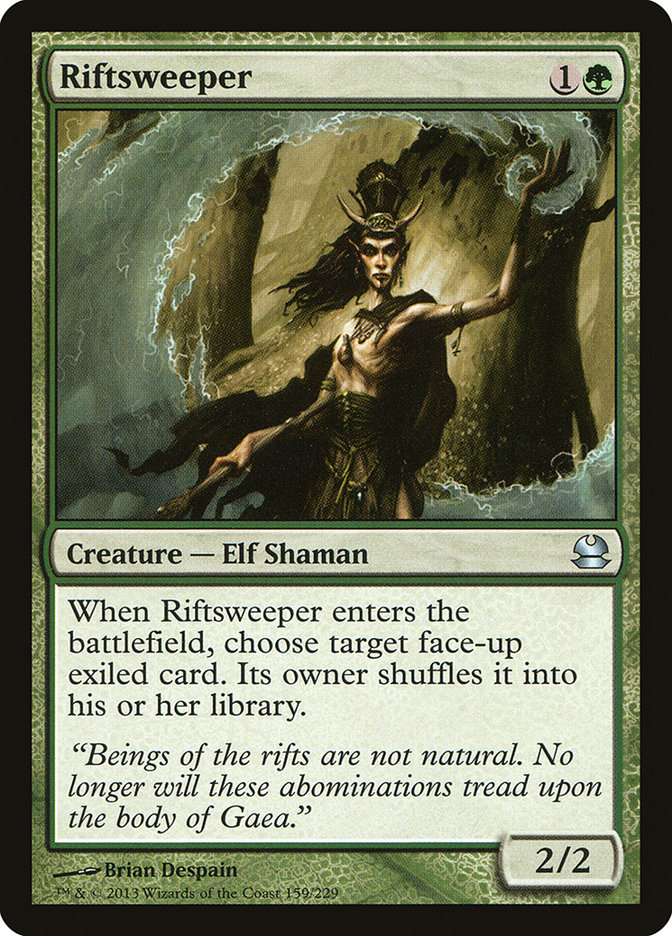
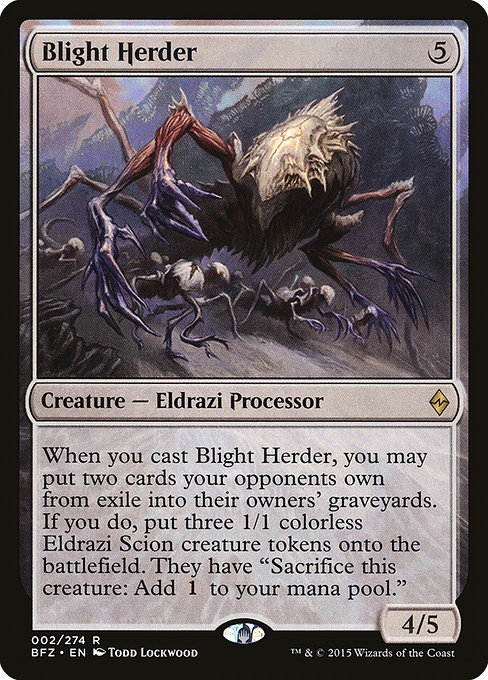
As far as older cards go, previous format all-star Rift Sweeper can get rid of the card from being on an Adventure. You’ll still get to use the replacement effect to put it back in the CZ instead of shuffling it into your library, but you’ll still lose out on value. Similarly, a bunch of Eldrazi can “process” cards from the exile zone and put them into graveyards. Again, this hoses your efforts to double-dip.
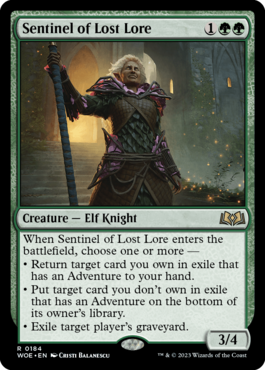
Sentinel of Lost Lore also lets you mess with an opponent’s Adventure card in exile. Will we see more cards that punish or otherwise interact with the exile zone now that Wilds of Eldraine is hitting standard? Potentially, so keep in mind that you may get blown out once in a blue moon.
END STEP
I hope this article has cleared up some of the questions you might have had about how Command Tax works with Adventure Commanders. Will there be a whole cycle of two color legends? We’ll have to stay tuned to see. Once the Wilds of Eldraine release notes hit, we’ll update this article with anything else we’ve learned.
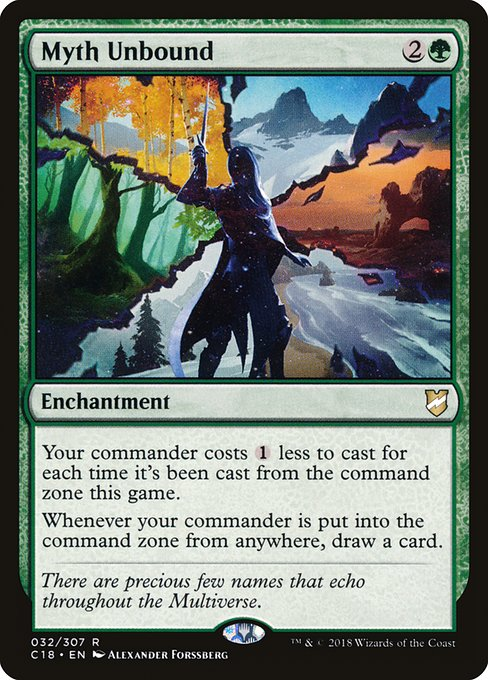
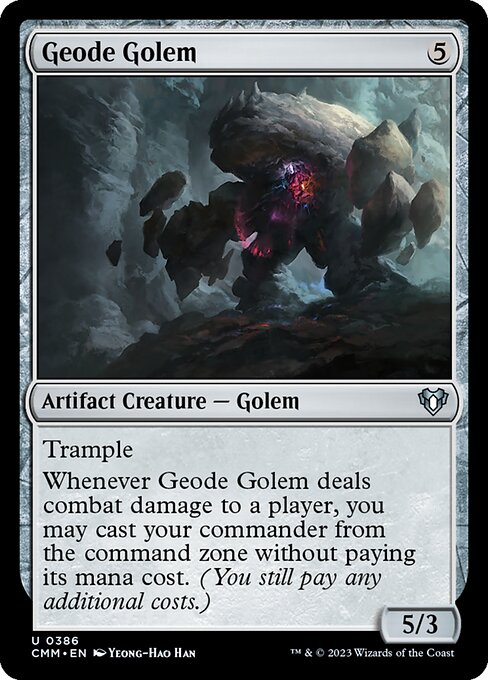
We’ll part ways with some cool synergies you should be aware of. Myth Unbound reduces both halves of the card, Adventure and Creature, which is some nice discount. Geode Golem can cast either the Adventure or the creature for free when it triggers. The aforementioned Flamekin Herald triggers off of both ways of casting the card.
Just bear in mind that the many effects that let you cast an instant or sorcery from your graveyard won’t allow you to cast the Adventure parts of Beluna or Kellan.
An adventure card is a creature card in every zone except the stack, as well as while on the stack if not cast as an Adventure. Ignore its alternative characteristics in those cases.
Check out the Throne of Eldraine release notes for clarifications on how Adventure works.

Kristen is Card Kingdom’s Head Writer and a member of the Commander Format Panel. Formerly a competitive Pokémon TCG grinder, she has been playing Magic since Shadows Over Innistrad, which in her opinion, was a great set to start with. When she’s not taking names with Equipment and Aggro strategies in Commander, she loves to play any form of Limited.


